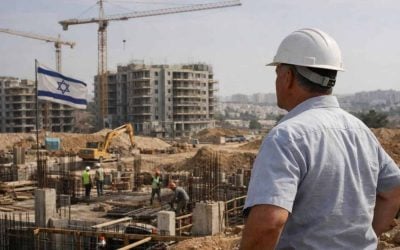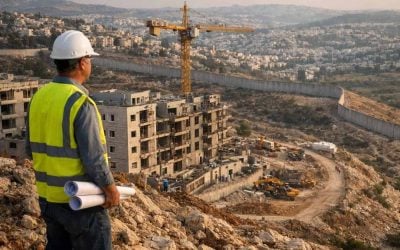Recent Trends in Housing Prices and Inflation
In recent months, the Israeli housing market continues to exhibit strength, though signs of moderation have emerged. According to the latest government data, average home Prices increased approximately 7.5% from December 2024 to January 2025, compared with the same timeframe a year earlier. This increase persisted despite general inflation showing signs of easing in February, suggesting housing inflation remains resilient against broader economic cooling.
The robust growth in home prices is primarily driven by persistent shortages of available housing units coupled with consistent demographic growth, including immigration. However, market analysts observe a subtle deceleration, highlighting only minor monthly increases toward the end of 2024 and a marginal decline in property values early in 2025.
Regionally, the housing price dynamics vary. Metropolitan areas like Tel Aviv and Haifa recorded significant annual gains of around 9.5% and 10.5% respectively in the past year, whereas Jerusalem displayed a relatively moderate increase closer to 6%. Analysts speculate that 2025 will witness steady yet somewhat slower price growth, influenced by stabilizing economic conditions, increased taxation, and higher interest rates.
Increased Interest from North American Investors
A notable shift in market participation is occurring with a substantial rise in interest from Jewish communities based in North America. Driven largely by increasing concerns about antisemitism abroad and economic uncertainty, these investors view Israeli real estate as both a secure investment and a potential future home.
An upcoming real estate expo highlights this surge in interest, as representatives from Israel’s largest real estate developers plan visits to major North American cities. The expo aims to showcase properties catering specifically to diaspora Jews planning Aliyah (immigration to Israel), seeking vacation residences, or investing in the local real estate sector.
Market Dynamics: A Buyer’s Market Emerging?
The Israeli real estate market faces shifting dynamics, with the number of unsold new apartments rising significantly, reaching approximately 80,000 units at the start of 2025. Factors contributing to this growing inventory include elevated interest rates, heightened economic uncertainty post-conflict, and high property prices deterring some buyers.
This large inventory of new properties indicates a potential transition towards a buyer-friendly market environment, where buyers may increasingly hold negotiating power and leverage attractive purchasing conditions from developers eager to reduce their stock of unsold properties.
Luxury Market and High-Value Transactions
Despite general market moderation, the Luxury housing sector continues to achieve remarkable sales figures. A recent high-profile transaction involved a prestigious penthouse in Tel Aviv selling for NIS 45 million, breaking local records. The luxurious residence covers about 370 square meters, accompanied by expansive terraces exceeding 140 square meters. This sale underscores the continued strength and desirability of Israel’s high-end real estate market, particularly within affluent urban centers.
Development Projects and Infrastructure Investments
Several ambitious property developments are actively underway, addressing long-standing housing shortages and infrastructure needs. Prominently, Tel Aviv’s significant Sde Dov redevelopment project is advancing, converting the former airport into a modern residential neighborhood. This project alone promises the addition of nearly 15,000 housing units over the coming years, although recent government Land tenders reflected more conservative bidding prices, indicating developers’ cautious outlook.
Additionally, urban renewal projects, often termed “Pinui-Binui” initiatives, aim to rejuvenate older neighborhoods by replacing outdated Buildings with modern, earthquake-resistant structures and adding new housing units to dense urban areas.
Infrastructure projects such as the proposed Tel Aviv Metro aim to enhance connectivity and are expected to stimulate real estate development in suburban areas, making peripheral regions more appealing to commuters and potential homebuyers.
West Bank Settlements Expansion
On the politically sensitive topic of settlements, recent announcements from the Israeli government highlight plans for substantial residential expansions, such as approximately 1,000 additional housing units in the Efrat settlement, located south of Jerusalem. Additionally, the previously stalled Atarot project near East Jerusalem has resurfaced, proposing roughly 9,500 homes. These developments have sParked controversy and concern over regional tensions, but they illustrate significant planned growth within these contested areas.
Investor Trends: Local and Foreign Activity
Investment patterns demonstrate renewed interest from local Israeli investors refocusing domestically after previously targeting overSeas markets. Contributing factors include geopolitical instability abroad and rising antisemitic incidents prompting capital repatriation into Israeli real estate. Domestic real estate firms now represent a substantial portion of companies listed on the Tel Aviv Stock Exchange.
Moreover, foreign investment, especially from Jewish diaspora communities, has notably increased. Mortgage applications from overseas buyers surged significantly, with an emphasis on communities from North America purchasing homes either for eventual immigration or as safe investments.
Government Initiatives and Market Regulation
Several new governmental policies have emerged, significantly affecting the real estate market. Notably, VAT on property transactions rose from 17% to 18%, implemented as part of fiscal measures to support post-conflict economic recovery. ConcurRently, capital gains taxes on property transactions increased for higher-income individuals, influencing investor behaviors.
Conversely, incentives aimed at attracting new immigrants include substantial reductions in purchase taxes on first-time home purchases. Additionally, proposals to encourage longer-term rental agreements with landlord tax incentives are under active consideration, addressing the widespread housing affordability crisis.
Mortgage and Financial Market Conditions
Mortgage borrowing costs remain high, with the Bank of Israel maintaining interest rates around 4.6%, significantly above historical lows. This financial environment has limited first-time buyer Accessibility and contributed to cautious market behavior, although lending institutions continue offering innovative mortgage products to attract borrowers.
Mortgage activity experienced significant volatility at the close of 2024, driven by anticipation of tax increases prompting buyers to finalize transactions rapidly. Following this spike, mortgage lending returned to more stable monthly volumes.
Supply-Demand Imbalance
Despite the recent surplus in newly built units, Israel’s long-term housing shortage persists, driven by steady demographic growth and inadequate historical construction rates. The high cost of construction, exacerbated by labor shortages due to reduced Palestinian worker availability and increased reliance on foreign labor, has slowed building progress and inflated new home prices. Consequently, buyers increasingly consider existing homes, intensifying competition in the resale market.
Rental prices also rose markedly, reflecting continued demand pressure due to limited housing availability. Rent affordability remains a key challenge in metropolitan areas, prompting discussions about regulatory reforms and long-term leasing solutions.
Post-Conflict Reconstruction Efforts
Post-war reconstruction initiatives focus on rebuilding damaged properties and improving security measures such as constructing safe Rooms in residences near conflict zones. Temporary housing solutions and rental subsidies support affected residents, influencing local rental markets by increasing short-term housing demand in specific cities.
Economic Outlook and Future Prospects
Overall, Israel’s real estate sector remains a critical economic barometer closely monitored by policymakers, investors, and the public. With economic recovery underway and the potential for future interest rate moderation, market participants anticipate ongoing housing market activity, tempered by affordability issues, regulatory shifts, and geopolitical considerations. Real estate affordability continues to be a focal point of public debate, influencing future policy directions.




